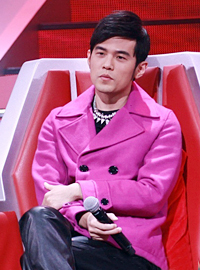Want to know how to craft a great zinger? Study the presidential debates.
想知道怎样说话能切中要害,给对方一万点暴击?研究研究总统政要们的做法。
We've all had this experience: You're in a debate or a discussion. You're at a loss for words. And of course, after it's all over, you think of exactly the right thing to have said.
我们都曾置身于讨论或是辩论,突然脑抽无话可讲,直到结束后,想想自己其实知道那时候该说什么合适。
I hate that feeling, but do you want to know who really hates it? Politicians.
你肯定懊恼坏了。没关系,遇上这事儿最上火的是我们可爱的政要。
Rhetoric and words are almost all that they have. Now that we're in the middle of the presidential campaign season, with caucuses and primaries about to happen, and one debate after another after another, that gives them an opportunity.
他们所能凭借的几乎只有生动的修辞和激动人心的话语。现在,又到一年竞选时,机密会议、党内初选、一个接一个的辩论......各派党人摩拳擦掌,企图大展拳脚。
Almost no political zinger is spontaneous. Consultants have spent millions trying to craft the right lines. And if you study the debates and the candidates' verbal tactics, you can find some great lessons--even blueprints--for using rhetoric to upend your adversary's position.
政治宣讲都不会只是一次次个人的即兴发挥。在这背后,有咨询顾问投以巨资来组织恰当火候的语言组成文稿。如果你曾研究辩论语言和竞选者们的言语攻势,那么你将学到宝贵一课——即使是只研究蓝图——通过修辞来颠倒错乱对手的处境。
Here are five examples--from both Democrats and Republicans.
下面是五个相关的例子,有出自民主党的,也有来自共和党的。
1.The dismissive counterpunch.
1.蔑视对手,报以迎击。
Let's start with the kind of one-punch knockout that can really end an opponent's chances. The trick here to know the kind of opportunity you're looking for and be ready. Two great examples:
我们来看两个不给对手留任何招架余地的一击制敌的例子,教会我们要善于发现和运用时机:
First, an example from this cycle--the way Donald Trump very effectively sidelined Jeb Bush by repeatedly describing him as "low energy." When Bush came out with guns blazing in one debate, Trump was able to put him off effectively simply by saying, "More energy tonight--I love that!"
第一个,是这个时代的例子——特朗普先生有效打击了杰布·布什的势头,靠的是反复称其“蔫头耷脑”。当布什在一次辩论中大放异彩时,特朗普致以暴击称:“啊哈,终于活过来了,我喜欢!”
Second, a more classic example. In 1980, President Jimmy Carter was running against Ronald Reagan, and Carter had used the same effective line of attack against Reagan--perhaps one too many times.
第二个例子更加经典。在1980年的竞选里,吉米·卡特总统对阵里根时,也用这样的话打击对手——十分有效,但是可能用的有点儿太多了。
Reagan was able to use a little verbal jiujitsu to turn the whole thing around on him in a debate. Instead of engaging, he simply dismissed Carter's line by chuckling: "Well, there you go again."
里根本可以使用适度的“言语柔道术”来扭转乾坤。但是相比针尖儿对麦芒,里根选择了简单一句话来打趣卡特:“呦呦,继续你的老生常谈吧。”
2.The cool cultural reference.
2.借鉴文化背景。
This one is really hard to pull off. It's about working a cultural reference into your reply to an opponent's rhetorical dig. It can easily backfire--but if you do it effectively, you're in great shape.
这可不是容易事儿,需要从当时当代的文化背景中取材融入准备的宣讲内容里。后果可能适得其反——但是如果能行之有效,出来的效果是很可观的。
Cultural references evolve so quickly, it's hard to recall some of these accurately, but here are two good examples.
鉴于文化背景演变速度之快,找到恰当的例子也是不易的。不过有两个例子放在这儿说很棒。
The first comes from 2012, when President Obama and Mitt Romney were squaring off. Obama wanted to take Romney to task for having suggested that Russia was the biggest foreign challenge facing the United States--not ISIS or another Middle Eastern foe.
第一个例子发生在2012年的大选,时任总统的奥巴马对阵罗姆尼。奥巴马意图通过指出美国当前的首要劲敌不是伊斯兰国等中东分子,而是俄罗斯。
His line? "The 1980s are calling to ask for their foreign policy back."It worked--but not perfectly--in part, perhaps, because Obama didn't get the cultural put-down exactly right (and maybe because by 2012, that was already kind of a cliché.)
原话怎么讲?“像仍活在上世纪八十年代一样,想用回20多年前的对外政策老套路。”这句话奏效了——但是说得并不完美——因为从某种程度上来说他的话曲解了罗姆尼的本意(也许是已经2012年了,这样说真的是陈词滥调)
A better example might come from 1984, in the Democratic primaries, when eventual nominee Walter Mondale suggested his rival Gary Hart didn't have any substance by quoting a Wendy's fast food commercial that was popular at the time: "Where's the beef?"
1984这一年民主党核心会议中,有个更好的例子。最终人选沃尔特指责对手哈特没有实力时,引用了一句美国快餐公司万迪的著名广告语:“那么牛肉在哪儿呢?”(指对手的真正实力根本不像看起来那么大)
3.The nod to truth.
3.站在真理一方。
Sometimes, the facts are on your side to the point that you can score simply by getting out of the way.
有时很明显你是占理的一方,那么稍微有所退让也足以让你得分。
A good example? Then-candidate Obama, in 2008, responding to a line of questioning about Hillary Clinton's "likability" by telling her she was "likable enough."
举个生动的例子?08年总统大选时,作为竞选者的奥巴马在回应关于希拉里是否够受大众喜爱时简单回应道:“她超可爱的。”
Perhaps the best came from the year 2000, when Vice-President Al Gore walked across the stage and sort of "got into the space" of Republican nominee George W. Bush.
更好的例子发生在2000年,时任副主席的艾伯特·戈尔像迈着太空步一样穿过礼台走向共和党对手小布什。
Bush interrupted his remarks just for a brief second, to nod in Gore's direction--as if to point out how weird it was that Gore had walked over. He didn't even have to say anything, but he made his point very clear.
小布什用了一小招就打破了僵局——冲戈尔走来的方向点了点头——不用一言一语,就足以表明自己觉得对方的行为有多滑稽。
4.The elephant in the room.
4.明明很明显,却避之不谈。
Sometimes there's another way to handle an obvious truth--and that's to say it in a manner that is so clear and obvious that there simply is no real response.
有时面对显而易见的事实,最好用的办法其实是和稀泥。
Example: In 1988, Dan Quayle was running for vice-president, and in a debate with the Democratic nominee, Senator Lloyd Bentsen, Quayle made the point that he had as much experience as John Kennedy had when he'd run for president in 1960.
例子:1988年的副主席竞选,丹奎尔与民主党对手参议员本特森激烈辩论。奎尔声称自己的经历和肯尼迪一样丰富,因为他从1960年就参与竞选总统了。
Maybe you weren't even born in 1988, but you might know Bentsen's response--which pretty much solidified the mainstream opinion of Quayle:
可能1988年是时你还没出生,不过你还是可以从本特森的回复中看出他和稀泥的功力——看似是对对手观点的强化,其实对自身有利。
"Senator, I served with Jack Kennedy. I knew Jack Kennedy. Jack Kennedy was a friend of mine. Senator, you're no Jack Kennedy."
“我亲爱的参议员,我曾效力于肯尼迪总统。我了解他。肯尼迪总统是我的朋友。不过,你永远不可能成为肯尼迪。”
5.The table-turn.
5.扭转乾坤。
Similarly, sometimes you can take your opponent's exact words and use them to turn everything against him or her.
有时情况就是这么简单,你可以用对手的原话来置其于不利之境地。
As an example, in the Republican debates earlier this year, Jeb Bush started attacking Senator Marco Rubio for having missed votes in the senate while he was campaigning. I'm not sure if this was ever going to be effective, but Rubio knocked him back and disarmed the attack simply by observing, "Someone convinced you attacking me is going to help you."
一个例子是,今年度共和党内部辩论中,杰布布什攻击对手马克卢比奥称其在竞选时错过参与议院内投票。我不知道卢比奥的举措是否奏效,不过他的反应时是报以回击称“你这样做是因为自认为攻击我对你的竞选有利。”(我不会通过攻击任何人来赢得竞选)
The most classic example is probably from 1984, when Reagan was running for reelection at age 73. When this was brought up in a debate, he almost seemed to have misunderstood the question in his remark--but it was a genius response:
更经典的案例出自1984年的总统改选,时年73岁。当他的年龄被对手在辩论中提及时,里根几乎误解了自己当时的处境——但他的回复堪称神来一笔:
"I will not make age an issue of this campaign. I am not going to exploit, for political purposes, my opponent's youth and inexperience," Reagan said.
“我觉得我在这个年龄竞选不成问题。我更不会通过揭露我对手的年轻和没有经验来获得什么政治上的胜利。”
How effective was it? He even left his opponent, Walter Mondale, laughing--and beat him in a landslide.
这话奏效了吗?里根甚至让他的对手捧腹大笑——也使自己身处劣势赢得竞选。
(来源:沪江英语)





































































































